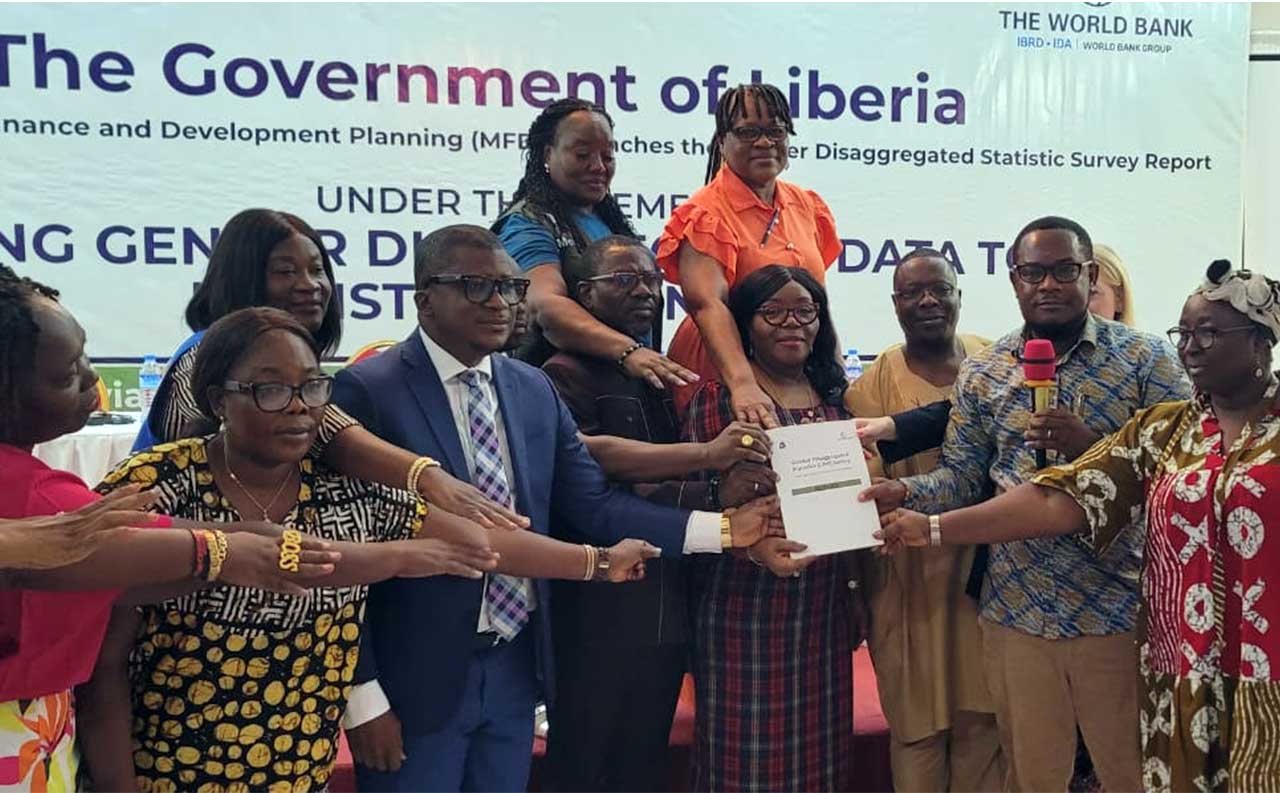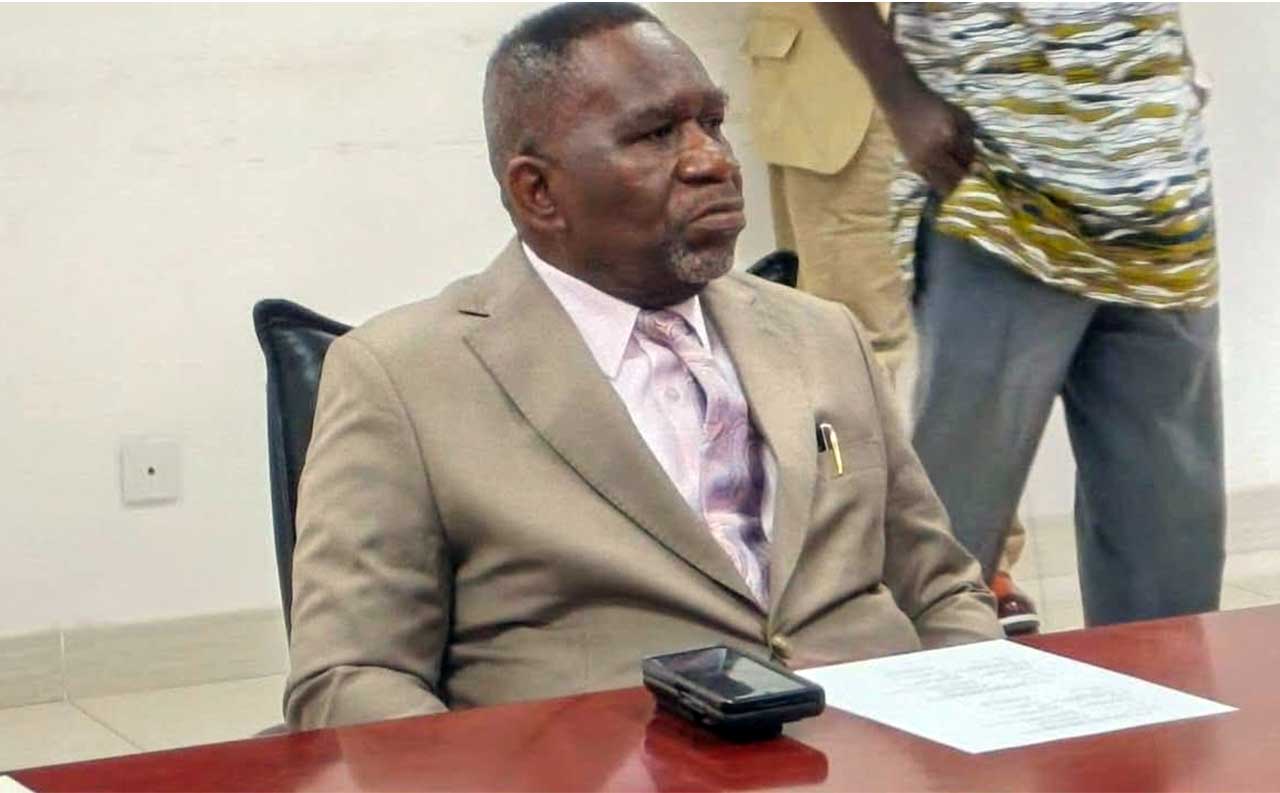The Government of Liberia(GoL) has launched a Gender Disaggregated Statistics Report aimed at addressing challenges posed by the absence of credible and reliable gender data for advancing social and inclusive planning and budgeting processes.
The launch, which took place at the Monrovia City Hall on Wednesday, April 16, 2025, was held under the theme “Using Gender Disaggregated Data to Mainstream Gender.”
According to Liberia’s Finance and Development Planning Minister, Augustin Kpehe Ngafuan, the launch of the Gender Disaggregated Data Survey report is significant, as access to quality and reliable data and statistics is crucial for development efforts. He said it informs decision-making, enhances effective policy-making and implementation, and monitors progress towards national development goals.
Minister Ngafuan narrated that not only is access to quality data and statistics important, but access to quality gender-disaggregated data is essential for informing decision-making that impacts the conditions of the most marginalized in society, including women and girls, men and boys, and people living with disabilities.
The minister stated that the government of Liberia and its partners have struggled with obtaining reliable data for a long time. This has significantly impacted the delivery of essential interventions across communities and regions due to the challenges caused by the lack of accurate data and statistics.
“Over the past few years, it may please you to know that the Government of Liberia initiated efforts to incorporate gender considerations into the national planning and budget processes,” he added.
According to him, the initiative developed the Gender-Responsive Planning and Budgeting Policy as a legal framework, accompanied by the establishment of an institutional framework that led to the creation of a Gender-Responsive Planning and Budgeting Unit at the Ministry of Finance and Development Planning.
However, despite the good intentions behind these initiatives, he disclosed that effectiveness has been undermined by the ongoing issue of unreliable data and statistics, particularly concerning gender disaggregation, which has hindered the unit’s ability to achieve its goals and objectives, thus affecting the quality of decision-making in this area.
The finance minister explained that the government’s intervention in resolving inequality and addressing marginalization through the national budget and the national development plan continued to be short-circuited simply because of the lack of reliable and accurate data.
“Our national development planning processes and other programs are also constrained for the same reasons. To the extent that every development sector of the country has been challenged with the lack of accurate and reliable data, it makes it compelling for an immediate intervention in this regard,” he noted.
The minister revealed that the challenges and many more instigated the desire of development partner, the World Bank to collaborate with the Government of Liberia to constitute the Gender Disaggregated Survey to gather information relating to gender disaggregation within three sectors (education, health and agriculture, to have a comprehensive set of information that would be effective in intervening in situations regarding inequality and marginalization.
He said technical support to facilitate the survey was provided by the Liberia Institute of Statistics and Geo Information Services (LISGIS), being the statistics house for the Government of Liberia. Also, a national consultant was hired for the purpose of drafting a report based on the outcome of the survey.
Also speaking, Deputy Minister for Research, Policy and Planning at the Minister of Gender, Curtis V. Dorley, said the report comes at a critical time in the nation’s development efforts, as it continues to advance gender equality and social inclusion through informed, data-driven policies.
“At the Ministry, we are deeply committed to creating an enabling environment where every Liberian, regardless of gender, can reach their full potential,” she stated.
Gender-Disaggregated Data is not just a statistical exercise but a critical tool for understanding the unique experience of women, men, girls and boys across various sectors.
The Deputy Minister for Research, Policies and Planning at the Ministry of Gender added that the findings of the survey report are timely and will be instrumental in shipping efforts.
She said gender-disaggregated data allows the Ministry to better understand disparities, measure progress and develop targeted interventions that respond to the distinct needs of women, men, boys and girls.



